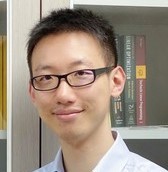2021 Summer School on Operations Research and Applications
The summer school aims at introducing mathematical modelling in operations research, as well as various practical applications from game theory, online learning, dynamic programming and so on. It would also like to provide a discussion forum for international participants, especially graduate students and young scholars.
This year we invite six speakers to give tutorials and research talks to share the latest development in operations research and their recent results. The lectures contain preliminary theoretical materials for real-world applications. We hope you will enjoy the two-day event.
Information
Date: 19-20 August, 2021
Place: Online (Airmeet)
Language: English
Audience: Students and scholars who are interested in the topic are welcome
Cost of participation: Free
Registration
Thank you for your interest and participation. The registration has now been closed. The workshop link and the entry ticket (the unique link) will be sent to all attendees by email one day before the workshop. For any questions, please email the organizer.
National Tsing Hua University
Registration Form
Speakers (Alphabetical order)

Prof. Po-An Chen
National Yang Ming Chiao Tung University
Po-An Chen is currently an associate professor in the Institute of Information Management, National Yang Ming Chiao Tung University. He is generally interested in economics and computation, artificial intelligence, and operations research, specifically including algorithmic game theory, machine learning (particularly, online learning), social networks, and multiagent and distributed systems. His current focus is on the performance analysis & computation of equilibria and learning algorithms in repeated games, markets or multiagent systems. He has published journal articles in Artificial Intelligence, ACM Transactions on Economics and Computation, Theoretical Computer Science, Theory of Computing Systems, Operations Research Letters, Information Processing Letters, among other leading computer science conference proceedings. He held a visiting scholar fellowship in the Department of Computer Science, Harvard University. He completed his postdoc in the Institute of Information Science, Academia Sinica, Taiwan and his summer internship in Centrum Wiskunde & Informatica, the Netherlands. He obtained his doctoral degree from the Department of Computer Science, University of Southern California, USA.

Prof. Ling-Chieh Kung
National Taiwan University
Ling-Chieh Kung is currently an associate professor in the Department of Information Management, National Taiwan University. He is interested in applying mathematical programming and developing algorithms for discrete optimization problems regarding scheduling and facility location problems. He is also interested in using game theory to analytically model and analyze the interaction among participants of multi-sided platforms for designing pricing and subsidization mechanisms. He has published journal articles in European Journal of Operational Research, Journal of the Operational Research Society, Transportation Research Part E, Naval Research Logistics, Operations Research Letters, Computers and Operations Research, among others. He obtained his doctoral degree from the Department of Industrial Engineering and Operations Research, University of California, Berkeley, USA. He obtained his master and bachelor degrees both from the Department of Information Management, National Taiwan University, Taipei, Taiwan.

Prof. Hsiao-Hui Lee
National Chengchi University
Professor Hsiao-Hui Lee is a Professor of Management Information Systems at the National Chengchi University. She received her Ph.D. in Operations Management from the Simon School at Rochester University, where she examined issues in service and healthcare areas using stochastic models. Her current research interests switched to empirical operations management in the context of supply chains, innovation, and sustainability. Her work has been published in leading journals such as Management Science, Operations Research, M&SOM, ISR, POM, and Review of Economics and Statistics.

Prof. Yu-Ching Lee
National Tsing Hua University
Professor Yu-Ching Lee is an Assistant Professor in the Department of Industrial Engineering and Engineering Management (IEEM) at National Tsing Hua University (NTHU). Before joining NTHU, she was a Postdoctoral Research Associate in the Department of Industrial and Enterprise Systems Engineering (ISE) at University of Illinois at Urbana-Champaign (UIUC) and in the meantime a lecturer of the regular IE courses and the Master of Science of Financial Engineering courses. She obtained a Ph.D. degree in Industrial Engineering from ISE at UIUC in December 2012, a M.S. degree with a thesis from the Department of Civil and Environmental Engineering (CEE) at UIUC in 2008, and a B.S. degree from the Department of Civil Engineering at National Taiwan University (NTU) in 2006. She is interested in optimization theory, modeling, and algorithm development. She has published in TS, OR, EJOR, JOGO, and GOPT.

Prof. Chuang-Chieh Lin
Tamkang University
Chuang-Chieh Lin currently is an assistant professor in the Department of Computer Science and Information Engineering at Tamkang University. He received his Ph.D. degree in Computer Science and Information Engineering from National Chung Cheng University in 2011. In 2007–2008, he won the DAAD-NSC Sandwich Program Scholarship and visited RWTH Aachen University for the whole year. In 2011–2018, Chuang-Chieh was a postdoctoral research fellow in Academia Sinica. In 2018–2020, he devoted himself into the fin-tech industry and focused on quantitative analysis of market micro-structures. Started from February of 2021, he joined the faculty of Department of Computer Science and Information Engineering at Tamkang University. His research interests include design and analysis of algorithms, game theory, machine learning, bioinformatics and quantitative finance.

Prof. Hao-Hsiang Wu
National Yang Ming Chiao Tung University
Hao-Hsiang Wu is an assistant professor in the Department of Management Science at National Yang Ming Chiao Tung University. He received his Ph.D. in Industrial and Systems Engineering from the University of Washington. His research focuses on mixed-integer programming and optimization under uncertainty. His research results have been applied to some domains, including social networks and logistics.
Program
2021.08.19 (Thu.)
| Time |
Title |
Invited Speaker |
| 09:45~10:00 |
Welcome |
| 10:00~11:00 |
Tutorial: Game Theory |
Ling-Chieh Kung |
| 11:00~12:00 |
Tutorial: Online Learning/Optimization |
Po-An Chen |
| 12:00~13:30 |
Lunch Break |
| 13:30~14:00 |
Game Theory |
Online Learning/Optimization |
Discussion |
| 14:00~15:00 |
When do prediction market makers make profits? |
Po-An Chen |
| 15:00~16:00 |
How Good is a Two-Party Election Game? |
Chuang-Chieh Lin |
| 16:00~17:00 |
Investment Strategies for Sourcing a New Technology in the Presence of a Mature Technology |
Hsiao-Hui Lee |
2021.08.20 (Fri.)
| Time |
Title |
Invited Speaker |
| 09:45~10:00 |
Welcome |
| 10:00~11:00 |
Tutorial: Nonlinear Programming |
Yu-Ching Lee |
| 11:00~12:00 |
Tutorial: Submodular Function Maximization Problems |
Hao-Hsiang Wu |
| 12:00~13:30 |
Lunch Break |
| 13:30~14:00 |
Nonlinear Programming |
Submodular Function Maximization Problems |
Discussion |
| 14:00~15:00 |
A Class of Graph Covering Problems |
Hao-Hsiang Wu |
| 15:00~16:00 |
An Approximation Algorithm for a Competitive Facility Location Problem with Network Effects |
Ling-Chieh Kung |
| 16:00~17:00 |
Competitive Demand Learning |
Yu-Ching Lee |
Tutorial Materials
• Prof. Po-An Chen
Tutorial title: Online Learning/Optimization
• Prof. Ling-Chieh Kung
Tutorial title: Game Theory
• Prof. Yu-Ching Lee
Tutorial title: Nonlinear Programming
• Prof. Hao-Hsiang Wu
Tutorial title: Submodular Function Maximization Problems
Research Talk Materials
• Prof. Po-An Chen
Research title: When do prediction market makers make profits?
Abstract: The correspondence between an online linear optimization/learning problem using Follow the Regularized Leader and a market making problem using a duality-based cost function market maker has been extensively explored. There, the goal of regret minimization for learners corresponds to the goal of minimizing the worst-case loss for market makers, which is a common objective for prediction market making design. With the insights from online learning about designing no-regret algorithms under a "predictable" or "more regular" loss environment (e.g., specifically, low variation or low deviation), which corresponds to some "patterns" of trade sequences in market making, we aim to achieve market making that furthermore guarantees profits, i.e., negative regrets, under appropriate patterns of trade sequences, which may require conditions other than those suggested by just low deviation or variation. Following the framework of regret analysis with the help of Be the Regularized Leader, we focus on analyzing Be the Regularized Leader with the known current loss vector (i) when in each time step, a leader is "strong" compared with the other non-minimizers in terms of its much little current cumulative loss, the regret will be negative in this case, and the more frequent changes of leaders the more negative of the regret. Finally, if the immediately previous loss vector is a good estimator of the current loss vector, the regret can stay negative if the estimation error is small. On the other hand, (ii) we are using the modified double-update multiplicative update algorithm for our purpose of catching the infrequent changes of "dominant experts" quickly enough to beat a fixed best expert in hindsight in cumulative losses thereby to obtain negative regrets. This is a joint work with Yiling Chen, Chi-Jen Lu, and Chuang-Chieh Lin.
• Prof. Ling-Chieh Kung
Research title: An Approximation Algorithm for a Competitive Facility Location Problem with Network Effects
Abstract: When facilities are built to serve end consumers directly, it is natural that consumer demands are affected by the number of open facilities. Moreover, sometimes a facility becomes more attractive if other facilities around it are built. To capture these factors, in this study we construct a discrete location model for profit maximization with endogenous consumer demands and network effects. The effective demand is then a concave function of the sum of benefits of open facilities due to the diminishing marginal benefit effect. When the function is linear, we design a polynomial-time algorithm to find an optimal solution. When it is nonlinear, we show that the problem is NP-hard and develop an approximation algorithm based on demand function approximation, linear relaxation, decomposition, and sorting. It is demonstrated that the proposed algorithm has worst-case performance guarantees for some special cases of our problem. Numerical studies are conducted to demonstrate the average performance and general applicability of our algorithms.
• Prof. Hsiao-Hui Lee
Research title: Investment Strategies for Sourcing a New Technology in the Presence of a Mature Technology
Abstract: To stay competitive, high-technology manufacturers (HTMs), such as Apple and Intel, not only frequently source new technologies from their suppliers, but also financially support the development of these new technologies into component products or production tools. We consider an HTM that can either source a new but immature technology from a financially constrained supplier, or source a mature technology from an existing supplier if and only if the development of the new technology fails. To support the new technology, the HTM can choose to inject capital in the form of an equity or a loan. The investment strategy affects the new supplier's development efforts and, hence, the new technology's chance of success. Because the existing supplier can still receive an order from the HTM should the new supplier fail, the investment strategy also affects the effort to improve the mature technology, which presents the HTM with a trade-off in motivating the two suppliers. We first show that competition from the existing supplier lowers the new technology's chance of success in equilibrium. Second, loans are not necessarily better than equity investments for the HTM because loans are mostly secured by the new supplier's technology-specific assets, the market value of which can be zero should the new supplier fail. However, a loan is preferred by the HTM over an equity when the new technology's chance of success is low because the new supplier is better motivated to exert effort without repaying the loan.
• Prof. Yu-Ching Lee
Research title: Competitive demand learning
Abstract: We consider a periodical equilibrium pricing problem for multiple firms over a planning horizon of periods. At each period, firms set their selling prices and receive stochastic demand from consumers. Firms do not know their underlying demand curve, but they wish to determine the selling prices to maximize total revenue under competition. Hence, they have to do some price experiments such that the observed demand data are informative to make price decisions. However, uncoordinated price updating can render the demand information gathered by price experimentation less informative or inaccurate. We design a nonparametric learning algorithm to facilitate coordinated dynamic pricing, in which competitive firms estimate their demand functions based on observations and adjust their pricing strategies in a prescribed manner. We show that the pricing decisions, determined by estimated demand functions, converge to underlying equilibrium as time progresses. We obtain a convergence rate of the revenue difference that is related to the squared number of the competitive firms, and a regret bound that is related to the number of competitive firms, both of them achieve O(T^{-1/2}) convergence rate. We also develop a modified algorithm to handle the situation where some firms may have the knowledge of the demand curve.
• Prof. Chuang-Chieh Lin
Research title: How Good is a Two-Party Election Game?
Abstract: In this talk, we introduce simple and intuitive models to investigate the efficiency of the two-party election system, especially regarding the nomination process. Each of the two parties has its own candidates, and each of them brings utilities for the people including the supporters and non-supporters. In an election, each party nominates exactly one of its candidates to compete against the other party's. The candidate wins the election with higher odds if he or she brings more utility for all the people. We model such competition as a two-party election game such that each party is a player with two or more pure strategies corresponding to its potential candidates, and the payoff of each party is a mixed utility from a selected pair of competing candidates. By looking into the three models, namely, the linear link, Bradley-Terry, and the softmax models, which differ in how to formulate a candidate's winning odds against the competing candidate, we show that the two-party election game may neither have any pure Nash equilibrium nor a bounded price of anarchy. Nevertheless, by considering the conventional egoism, which states that any candidate benefits his/her party's supporters more than any candidate from the competing party does, we prove that the two-party election game in both the linear link model and the softmax model always has pure Nash equilibria, and furthermore, the price of anarchy is constantly bounded. This is a joint work with Chi-Jen Lu and Po-An Chen.
• Prof. Hao-Hsiang Wu
Research title: A Class of Graph Covering Problems
Abstract: We consider risk-averse combinatorial optimization problems, wherein one problem, the risk is measured with a chance constraint. The chance-constrained optimization problem aims to find binary decisions such that a desirable event is highly probable. In this problem, we assume that there exists an oracle that computes the probability of the event precisely. We propose general methods for solving the chance-constrained problem using this oracle. In another problem, the risk is quantified by conditional value-at-risk (CVaR). This problem optimizes the CVaR of a random objective function at a given risk level, where the random objective function is submodular. We assume that we have an oracle that evaluates the CVaR function exactly. We propose a general method for solving this CVaR optimization problem. We demonstrate the proposed methods on a class of graph covering problems.






